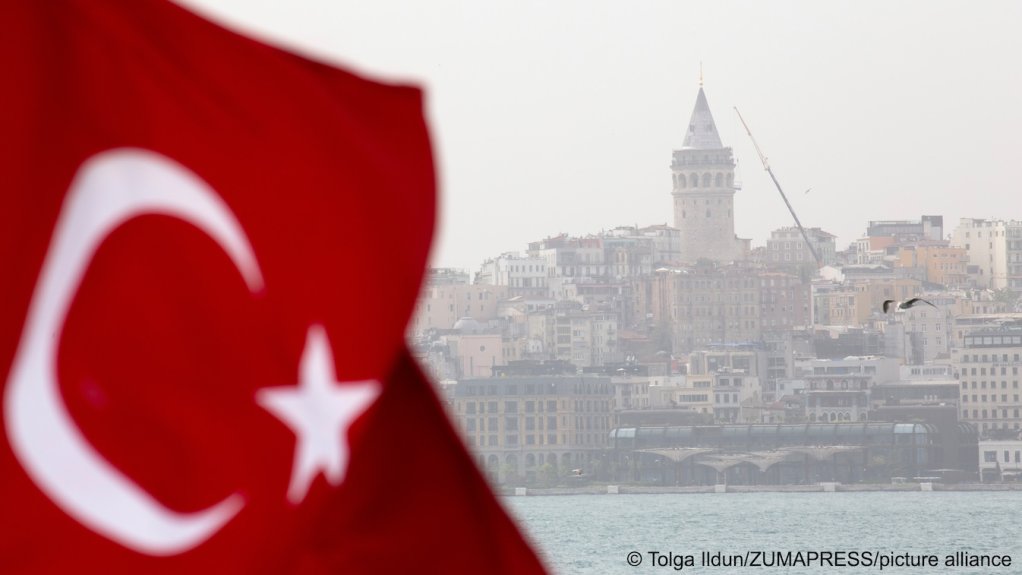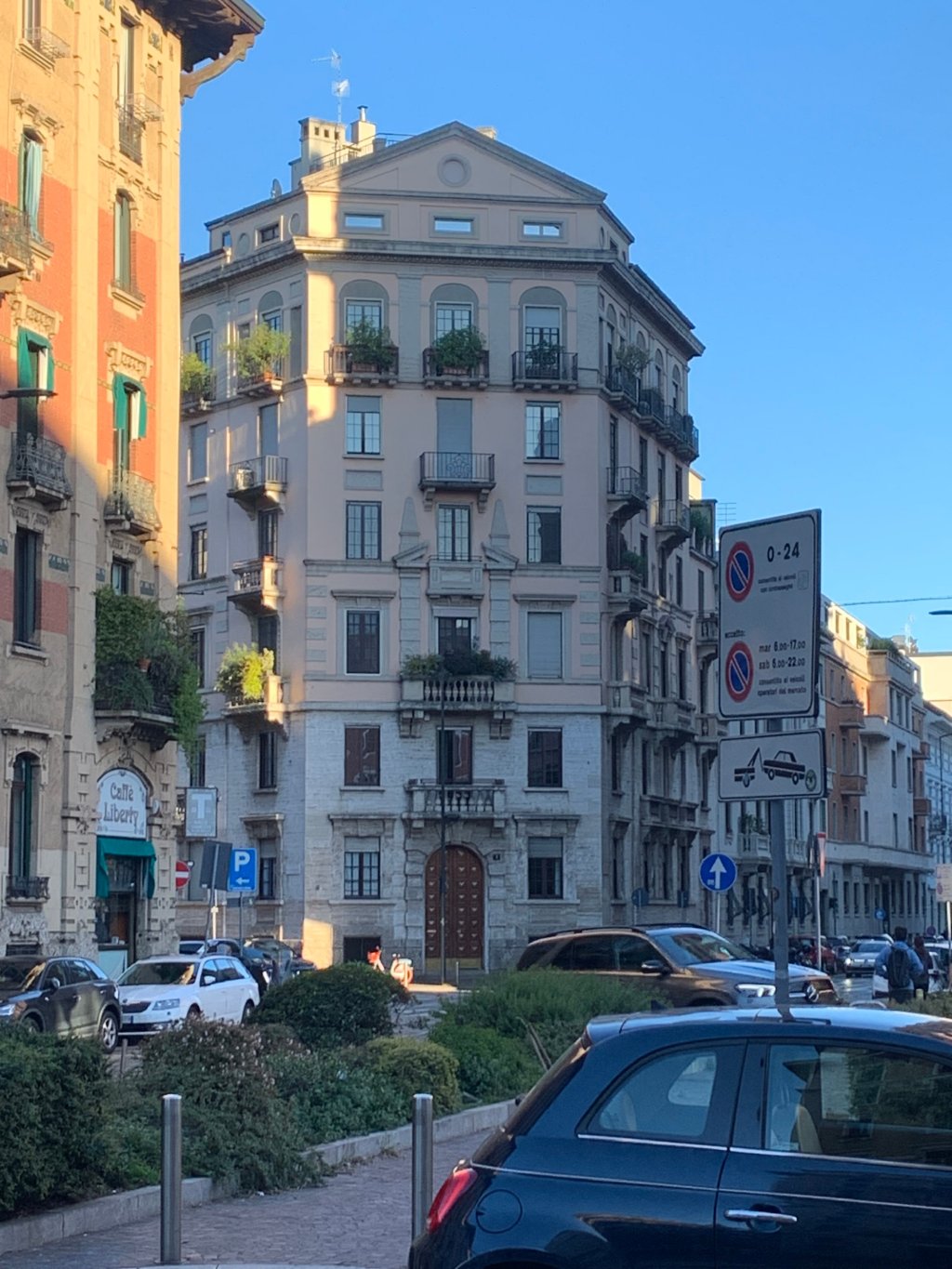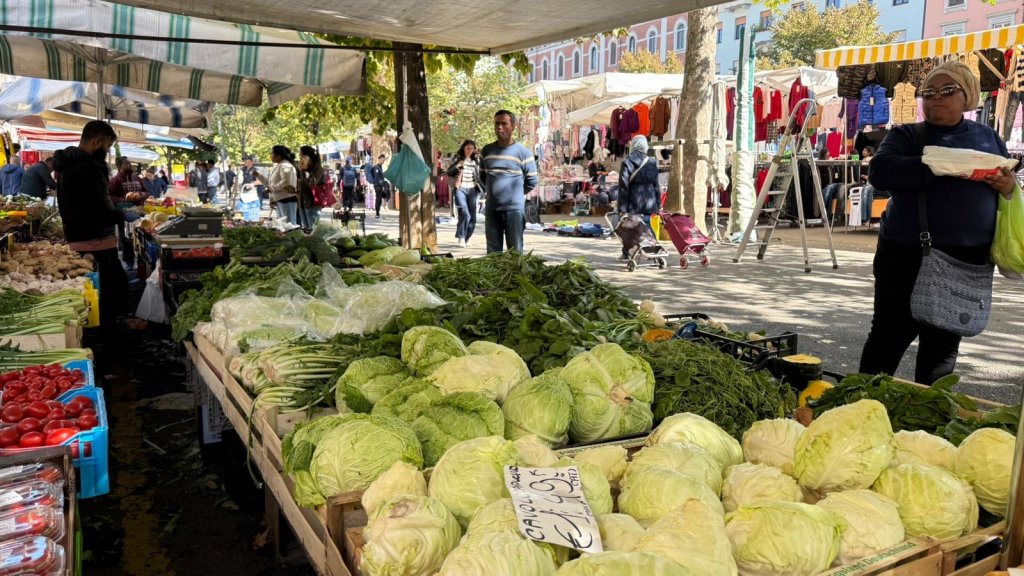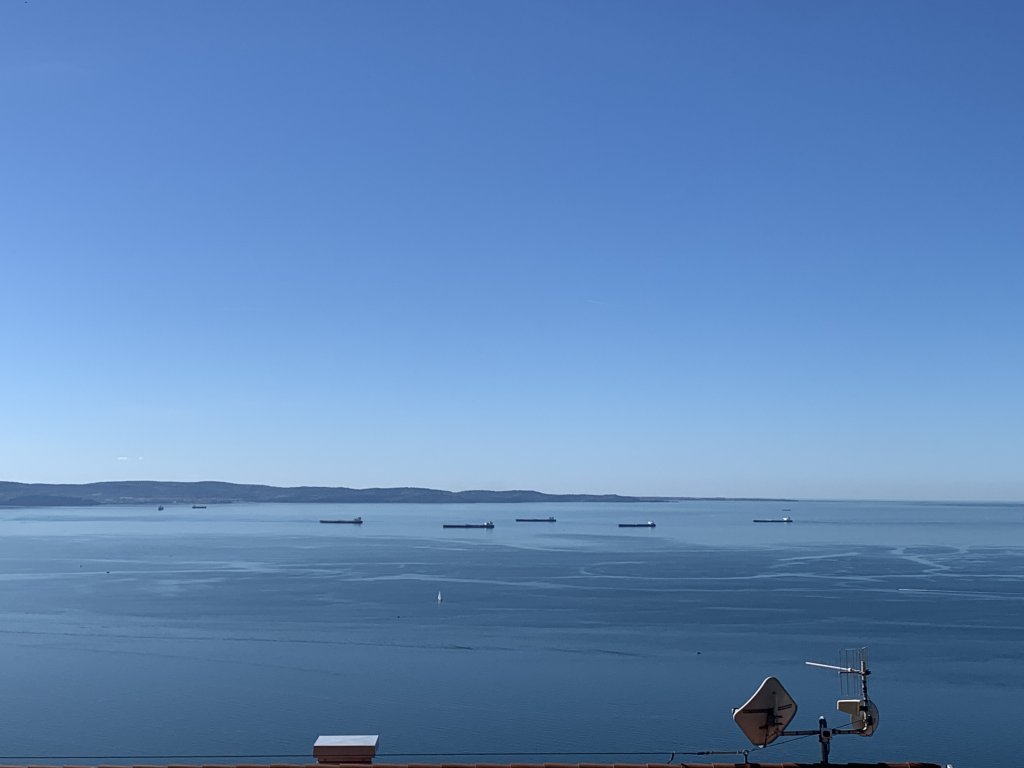Noura* is 31 and from Tunisia. She is the mother of a two-year-old and a small baby. After a long journey, via Turkey, Serbia, Germany and Austria, she has found a place she can call home, in Italy. She talked to InfoMigrants about her story.
"Noura* means light," says Noura with a smile, radiating calm clear-sightedness and positive energy, like the name she chose for this article. Her tiny two-month-old baby boy is sleeping peacefully in a pram by her side. Noura answers questions in fluent English. She can also speak Italian, French, Arabic and some German, she explains.
"I came to Italy in 2023, today marks two years and two months since I arrived here, and after a long journey, we have our documents now and we are OK."
Before we meet, Silvia Scotti, who runs the community house where Noura and her children live, calls to talk in a bit more detail about Noura and the other residents' journeys towards Italy. Many, although not all, have faced trauma and violence along the way, and the project leaders are keen that the women not be retraumatized when being interviewed.
In Noura's case, explains Scotti, she decided to leave Tunisia when she realized that the country was no longer offering her a future or the sense of freedom that she was looking for. She had always dreamed of moving to Italy, says Scotti, a bit like Europeans might once have dreamed of migrating to America in search of a better life, but when her sense of freedom became really threatened, she decided to take the risk and begin the journey.
Scotti works for Fondazione Progetto Arca (The Ark project foundation), an Italian association that was founded in Milan in 1994 and now runs projects across Italy and the world to help and support marginalized communities, including migrants, asylum seekers and refugees. It runs several reception centers for migrants and asylum seekers in Milan.
Read AlsoProgetto Arca: Offering a sanctuary for migrant women, children and families in Milan
'I have always worked'
Unlike many women who are living in the community, Noura has a high level of education and has worked for years before she left her native Tunisia. Scotti says she completed 13 years of education "They have a different system from us, but she majored on languages," says Scotti.
"When I was in Tunisia, I worked in various different occupations, but I prefer to talk about my customer service and translating for people," says Noura.

"That was a job in international trade, so buying and selling things with different countries like Belgium. I worked for two years in Antalya in Turkey too, as a tourist guide, translating from English, French, and a little bit of German."
Noura explains that she is looking forward to a time when her infant son can be left for a few hours at a time, and when she has stopped breastfeeding him, so that she is able to take up a job once again.
"I love my job. I have always worked and I didn’t stop until I began my migration journey, and so I really want to get to the position where it is safe to leave my baby for four or six hours at a time and then I can work again," Noura confides with a smile.
Italy was always the target destination
Noura doesn't give many details about her journey, but explains that after Turkey, she traveled through Serbia, Germany and Austria, and was already pregnant by that time with her daughter.
She spent some time in reception centers in both Austria and Germany, Noura explains, but Italy was always her target country.
"Tunisia is a melting pot, so I knew people from Italy there, and I had friends and relatives here, too. It feels partially familiar, not 100 percent, but partly. Our culture is not so close to countries like Austria, Germany and Switzerland. I crossed all these countries to come here. I have never regretted it. The people in the camp are so good to me, they are so lovely. They never leave you with the feeling that you are alone."

Noura recounts with humor some of her experiences in German-speaking cultures. Events that made her feel like a number, depersonalized and distanced, uncared for.
"In Germany, for example, I was often given the feeling that I was a problem. They would ask me if I could speak German. In Austria, people were very cold. If you need help in the street, perhaps you are looking for a bus, it is difficult to get help. Most people can speak really good English there, but if I asked 'do you speak English?' it seemed to me they would say no, but after a while, it turned out they could."
'In Italy, people are smiling, laughing and shouting'
Noura admits that although Germany and Austria might offer high quality health care and have money, it is the human touch that was lacking and made her feel alienated.
"In Italy," she says with a broad smile, "people are smiling, laughing and shouting. In German-speaking cultures, it seemed as though those things are frowned upon. If your social worker is talking to you in Germany, they might speak very slowly for you, but they don't smile. If you are on a bus, the driver or fellow passengers will frown or tell you off if you raise your voice or try and drink some water. You will have to pay a fine if you cross the road at a red light. It is just too much money, I can't deal with that..." says Noura, giggling.
"Here in Italy, I have good and nice people around me, they are protecting me. I have no problem here."

Silvia Scotti is sitting next to Noura as she recounts her experiences, the warmth and cameraderie between the two is palpable.
"What I noticed since I joined the [Progetto Arca] community is that people try so hard to help us. They are making sure that I am protected," says Noura quietly.
'We can't complain about anything, we came here with nothing'
"We can’t complain about anything, we came here with nothing, so we can’t ask for more. But at least you have a roof over your head, you have a place to sit. If I was in my country, I could never take care of two kids alone. Here, the coordinators have been brilliant. They call the school to help find you a place for the children. If you are pregnant, they help you get your health checked, and they do their best to make sure that you reach what you want, that you achieve your goals."
Italy might not have the financial resources that might be available in richer countries like Germany or Austria, but, in Noura's view, "they help you, even with minimum resources, and I really appreciate that. They give you the feeling that you are an individual and that they are working with you. They don’t see me as a number, and that is such a good feeling."
Noura continues: "You are not in your own country, but the people here give you the feeling that you are welcome. They laugh with you and talk to you. If I need to go and speak to Silvia [the manager of the house where Noura lives] she won’t say, 'no don’t talk to me,' she will say, 'come in, you need something? Just tell me.' She’s open, and this is so important, especially psychologically.
The welcoming attitude extends to the provisions and food provided for asylum seekers too, thinks Noura. In Austria, she remembers dinner was one bottle of water and one slice of bread. "You had the right to ask for a second piece of bread, but more than that was not allowed," says Noura.
'I feel more comfortable in Italy'
"When I arrived in Italy and I ate pasta for the first time, I just felt like crying, I was so happy. Here I just feel more comfortable, there it is very difficult to start up conversations. The cultures are perhaps just too alien to mine."
This feeling of stability in Italy is helping Noura think about the future. Now her documents are taken care of, and she knows she has the backing of those who work at Progetto Arca. She wants to begin giving back and helping those like her, as she herself has been helped.
"I am really hoping to find a job as soon as I can so that I can progress my career. I know that I might not be able to choose entirely, but I want to feel like I am moving forward. I want to be able to use the diplomas I have and work with them."

As well as working, Noura hopes to volunteer too. "God brought us into this world, not just to eat, sleep and wake up, but to work. You need to make your mark on life, and that’s what I want to do here. If you are helping other people, you feel happiness, this is so meaningful. I want to have that career, to help others as I was helped. I think, based on my experience, I am in a good position to help others on this route now. I want to build a better future for my kids."
Giving back
At the moment, however, Noura admits that her two-year-old is taking up much of her time. "She is quite a handful. I am not sure if it is genetic or a result of the circumstances, of us being on the move, or because we now live in a relatively small space within the center, but she takes quite a lot of care at the moment."
However, slowly but surely, Noura is getting ready to take the next steps. "I am concentrating on integrating here. I want to work on myself first. When you bring kids into this world, you need to learn how to be a mother, how to treat them. I need to know more about myself, to be stable, to go slowly. I believe it is important to move forward slowly step by step, rather than making a big jump and then falling backwards because you took on too much."
You get the feeling that to have arrived this far, Noura must have always been a resilient person. Her parents, she says, passed away when she was just 12. She set out on her migration journey with her partner, but Silvia explains they have since broken up. Noura is concentrating on building her future the way she envisages it. This has been made possible with the support of Progetto Arca and Silvia, Noura underlines. "Silvia is a great person, she is so kind, she is helpful and she always gives you the feeling you are not alone. That is the most important feeling that one can have."
*Name changed to protect her identity
